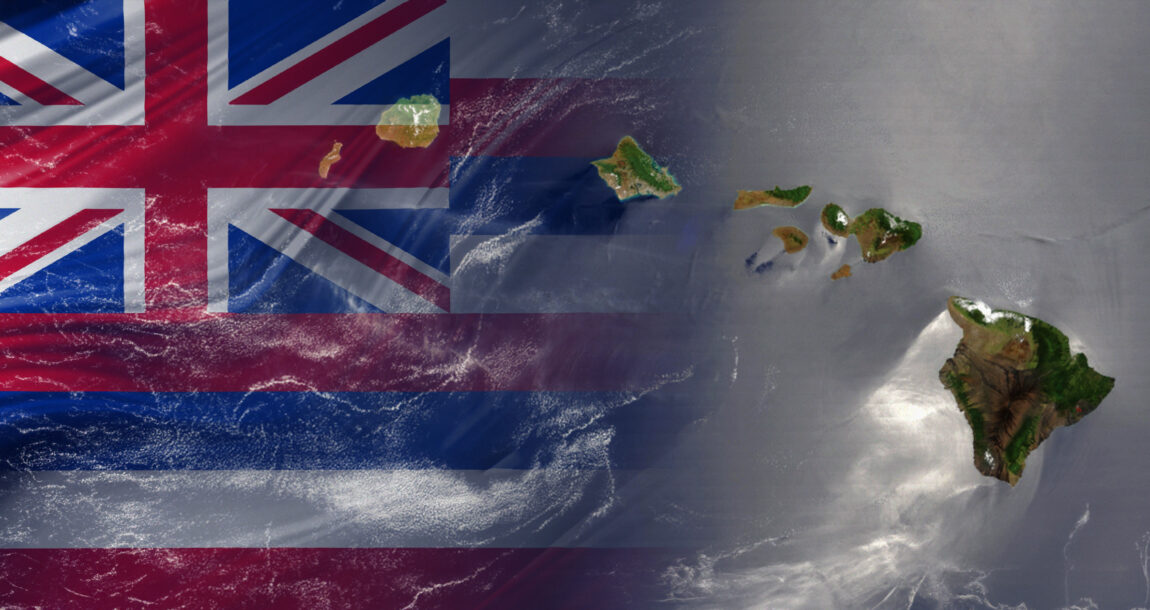Hawaii’s high court sides with AIG in climate change lawsuit

Hawaii's highest court sided with American International Group in classifying greenhouse gases as pollution, thereby triggering an insurance exclusion.
The decision is one of the first rulings in a climate change lawsuit, a legal strategy that has taken off, the New York Times reported last month.
Aloha Petroleum filed the lawsuit against its insurance providers – National Union Fire Insurance and American Home Assurance – to force the insurers to cover its legal fees in ongoing climate litigation. Both insurers are AIG subsidiaries.
The City and County of Honolulu and the County of Maui sued Aloha Petroleum and other defendants for harms related to climate change, according to court records.
City and county officials claim that fossil fuel products, when used in the ordinary course, have contributed to emissions of carbon dioxide, and other greenhouse gases – and that the use of those products by the public contributed to global warming, court documents say.
"Specifically, the plaintiffs assert various tort claims contending that the defendants are directly responsible for the damaging effects of global warming because of defendants’ alleged failure to disclose or warn of the hazards of using the fossil fuel products that the defendants sold into the stream of commerce," one court entry reads.
A 'duty to defend' alleged
The Hawaii Supreme Court heard oral arguments in June in Aloha's complaint against the AIG insurers. According to its complaint, filed in August 2022, Aloha claimed the AIG insurers have a duty to defend and indemnify the company under Commercial General Liability policies issued between 1978 and 1985.
The insurers denied coverage based on a pollution exclusion. In its lawsuit against the AIG insurers, Aloha said it incurred more than $880,000 in defense costs in connection with the climate change lawsuits, and "expects that it will continue to incur significant additional defense costs, as the litigation progresses."
A federal court judge sent the issue to Hawaii's top court to settle two questions:
(1) For an insurance policy defining a covered “occurrence” in part as an “accident,” can an “accident” include recklessness?
(2) For an “occurrence” insurance policy excluding coverage of “pollution” damages, are greenhouse gases “pollutants,” i.e., “gaseous” “irritants or contaminants, including smoke, vapor, soot, fumes, acids, alkalis, chemicals and waste”?
Christopher J. St. Jeanos, partner with Willkie Farr & Gallagher, represented the AIG insurers. He argued that Aloha intentionally took action that it knew would cause harm when it promoted fossil fuel products that contribute to climate change. That makes the company ineligible for coverage under its policy, St. Jeanos said.
John Sylvester, partner with K&L Gates, represented Aloha Petroleum. He urged the court to find the AIG insurers liable for coverage, telling judges that there was no expectation of harm when Aloha initially sold its product.
Billions of tons
The high court reached a "Yes" on both questions. On the second question, the court acknowledged that other courts have ruled that carbon dioxide or gasoline are not pollutants.
"We don’t construe the exclusion on a molecule-by-molecule basis," Judge Todd W. Eddins wrote for the state high court. "Carbon dioxide may not be a pollutant in a single office building, but it is when billions of tons are added to the atmosphere every year."
The court dismissed Aloha's claims for liability coverage, saying it renders the pollution exclusion "meaningless."
"Aloha reasonably expects coverage for product hazards that are not pollution," Eddins wrote. "If a business sells a product that is inherently polluting, that fact must be part of its reasonable expectation. To hold otherwise would write the pollution exclusion out of the policy."
© Entire contents copyright 2024 by InsuranceNewsNet.com Inc. All rights reserved. No part of this article may be reprinted without the expressed written consent from InsuranceNewsNet.com.
InsuranceNewsNet Senior Editor John Hilton has covered business and other beats in more than 20 years of daily journalism. John may be reached at [email protected]. Follow him on Twitter @INNJohnH.






Study: Consumers find life insurance policies overly complex
Seeking answers for insurance crisis left in Milton, Helene’s wake
Advisor News
- Why aligning wealth and protection strategies will define 2026 planning
- Finseca and IAQFP announce merger
- More than half of recent retirees regret how they saved
- Tech group seeks additional context addressing AI risks in CSF 2.0 draft profile connecting frameworks
- How to discuss higher deductibles without losing client trust
More Advisor NewsAnnuity News
- Allianz Life Launches Fixed Index Annuity Content on Interactive Tool
- Great-West Life & Annuity Insurance Company Trademark Application for “SMART WEIGHTING” Filed: Great-West Life & Annuity Insurance Company
- Somerset Re Appoints New Chief Financial Officer and Chief Legal Officer as Firm Builds on Record-Setting Year
- Indexing the industry for IULs and annuities
- United Heritage Life Insurance Company goes live on Equisoft’s cloud-based policy administration system
More Annuity NewsHealth/Employee Benefits News
- Sick of fighting insurers, hospitals offer their own Medicare Advantage plans
- After loss of tax credits, WA sees a drop in insurance coverage
- My Spin: The healthcare election
- COLUMN: Working to lower the cost of care for Kentucky families
- Is cost of health care top election issue?
More Health/Employee Benefits NewsLife Insurance News